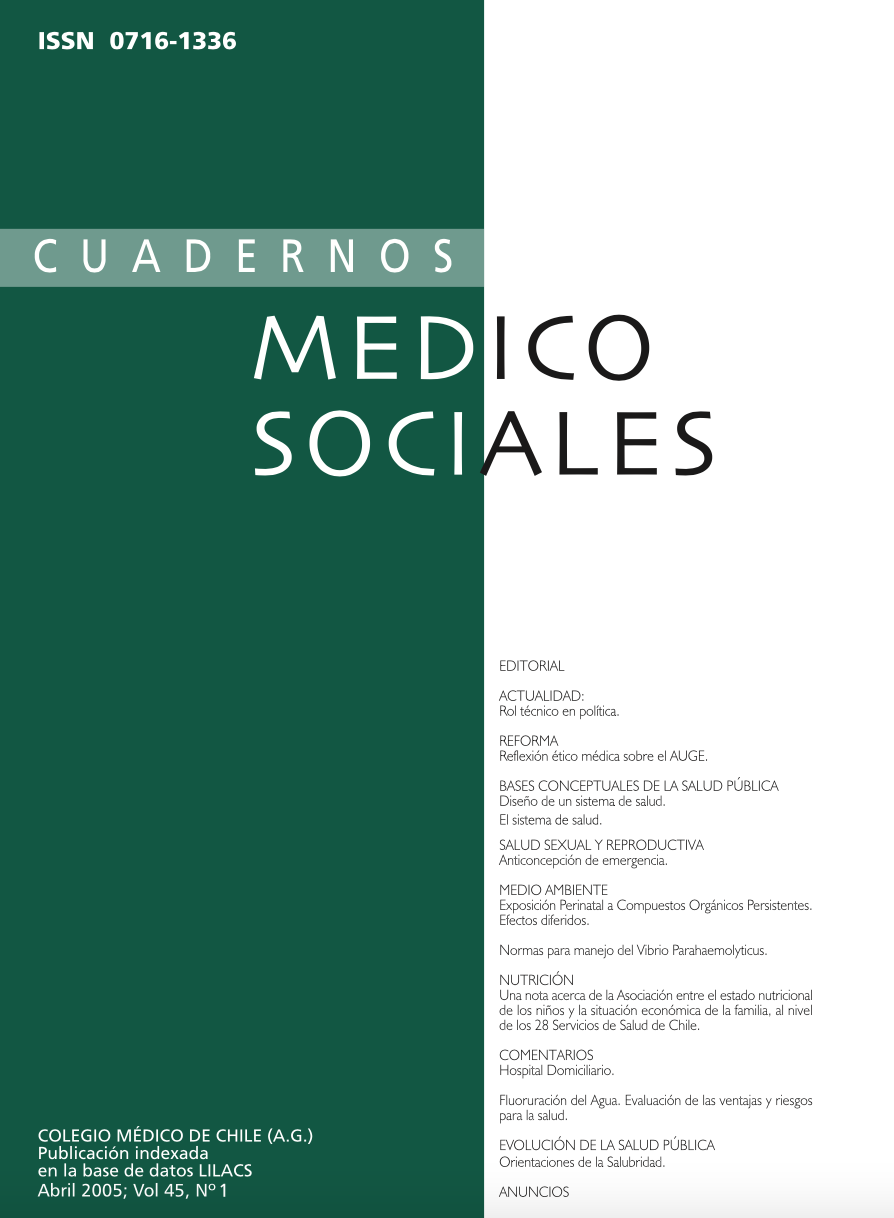A Medical-Ethic Reflexion On The AUGE
Keywords:
Health reform, Medical EthicsAbstract
The first bill that the Chilean Government sent to the Parliament about Universal Access to the health services with Explicit Guarantees (AUGE) is analyzed in the light of medical ethics. In practice, the Project is based on the definition of a list of (AUGE) diseases better attended than before, leaving the remai- ning diseases to be attended worse than AUGE ones. AUGE includes severe epistemic errors because diseases (diagnostics) are not biotic processes, but, nominal conventions made to order the diagnostic ascertainment and therapy. Patients do exist (biotic processes) and may present several diagnostics (AUGE and non-AUGE), remain without diagnostic (irreducible AUGE injustice) and, discriminately wait for a diagnosis to be included or excluded from AUGE. Human persons (patients) are submitted to possible diagnostics by AUGE; once the diagnosis is proposed and without the patient’s consent he or she will be distributed to an assumed “better” or “worse” system of medical attention. This treatment of patients violates the principles of autonomy, justice, “do not harm” and beneficence. AUGE distorts the professional practice and ethics of medicine. A health resource disputed for an AUGE and a non- AUGE patients should be assigned to the first one, to avoid falling in economic or legal malpractice, independently of technical, scientific or ethical criteria of medicine.
Downloads
Downloads
Published
How to Cite
Issue
Section
License

This work is licensed under a Creative Commons Attribution-NonCommercial-ShareAlike 4.0 International License.


